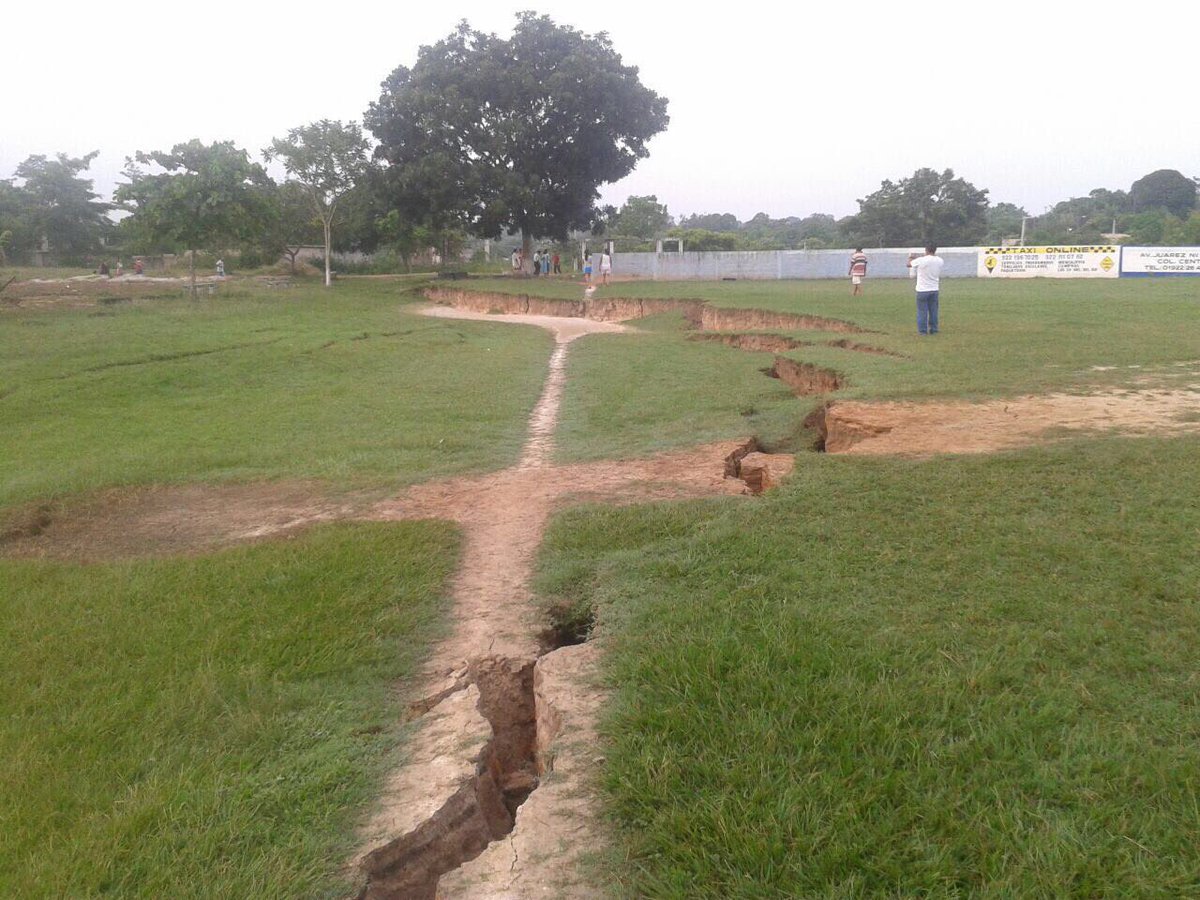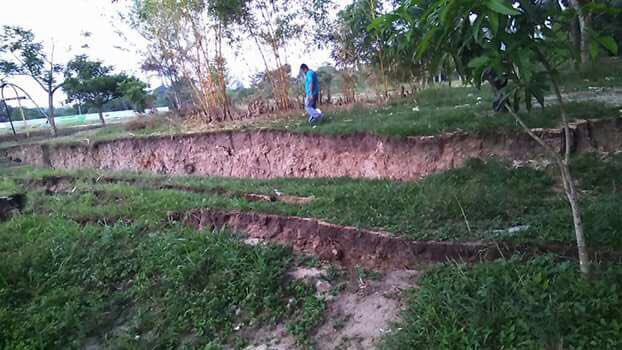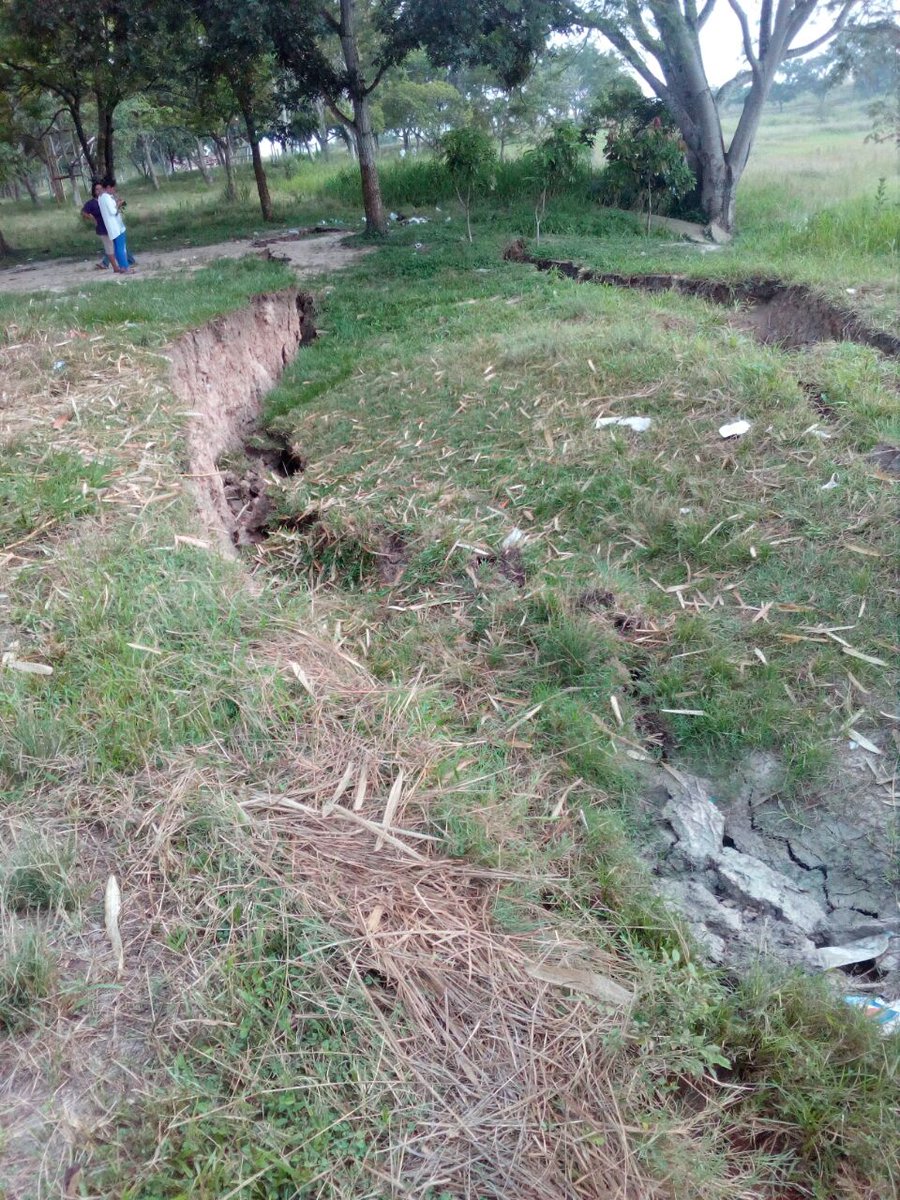Mexico was hit by tropical storm Katia less than 24 hours after the most powerful earthquake that hit the country in the last 100 years – a devastating 8.1 magnitude earthquake – killed at least 61 people.
Among a tsunami, loud booms and mysterious flash, the tropical storm and the dangerous earthquake produced huge and deep cracks in the ground, splitting up Jáltipan, Veracruz in half.

Tropical storm Katia made landfall on Saturday as Mexico struggles to recover from earthquake.


The massive 8.1 earthquake struck 60 miles off the southern coast of Mexico near the town of Pijijiapan.


The world is more dangerous today than it has been in a generation, the head of Nato has said, days before the mobilisation of an estimated 100,000 Russian troops on the EU’s eastern borders, and as a nuclear crisis grows on the Korean peninsula.
Jens Stoltenberg, secretary general of the military alliance, said the sheer number of converging threats was making the world increasingly perilous.
Asked in a Guardian interview whether he had known a more dangerous time in his 30-year career, Stoltenberg said: “It is more unpredictable, and it’s more difficult because we have so many challenges at the same time.
“We have proliferation of weapons of mass destruction in North Korea, we have terrorists, instability, and we have a more assertive Russia,” Stoltenberg said during a break from visiting British troops stationed in Estonia. “It is a more dangerous world.”
From next Thursday, over six days, Russian and Belarusian troops will take part in what is likely to be Moscow’s largest military exercise since the cold war. An estimated 100,000 soldiers, security personnel and civilian officials, will be active around the Baltic Sea, western Russia, Belarus and the Russian exclave of Kaliningrad, without the supervision required under international agreement.
On the other side of the world, in the face of local protests, the South Korean government has deployed the controversial US Thaad missile defence system as it looked to counter potential future attacks from North Korea, which recently launched a ballistic missile over Japan, threatened the US Pacific territory of Guam and tested a possible thermonuclear device.
Donald Trump has threatened to unleash “fire and fury” on the North Koreans should further threats be made against the US, and kept up the threat on Thursday, saying he is building up US military power.
Trump has ruled out talks with Pyongyang for the time being and Washington’s diplomatic focus is now on efforts to secure agreement at the United Nations for much tighter economic measures, including an oil embargo and possibly a naval blockade.
Speaking during his visit to the Estonian military base in Tapa, a former Soviet Union airstrip about 75 miles (120km) from the border with Russia, Stoltenberg was coy when asked if he backed the US president’s bellicose threats to Pyongyang, blamed by some for exacerbating the current situation in south-east Asia.
“If I started to speculate about potential military options I would only add to the uncertainty and difficulty of the situation so I think my task is not to be contribute to that. I will support efforts to find a political, negotiated solution,” he said.
As the ninth annual BRICS gathering, held this year in China, comes to an end, it’s time to point out that these five nations representing some 23% of the world’s economy and 43 % of its population, is almost totally absent from the Western media. Yet the very fact that 43% of the world’s population only accounts for 23% of its wealth should make the ‘developed world’ take notice.
In what may seem like a contradiction, the reason why this has not happened in the eleven years since the organization’s founding, is that it embodies the world’s challenge to American hegemony. Most Americans have never heard the word BRICS, let alone being aware that it stands for Brazil, Russia, India, China, South Africa.
Coincidentally, as I write this, Peter Lavelle’s Crosstalk on RT is discussing this very issue and specifically, who stands to gain from the US refusal to acknowledge the growing list of international economic organizations centered around Russia and China. Dmitry Babich commented that the US doesn’t even notice the Eurasian Economic Union, while Marc Svoboda asserted that Russians and their allies actually want to be decoupled from the West. Svoboda also mentioned that Iran and Egypt had both accepted invitations to the BRICS meeting, foreshadowing the possibility of a gradual healing of the Sunni-Shia rift.
For decades the US dictated the behavior of the world community but since Vladimir Putin acted on the socialist principle of non-interference in Syria by assisting the government under attack by the US and its proxies, the US is no longer seen as the ‘indispensable nation’, as Obama liked to say, and that in fact, it is responsible for much of what is wrong with the world.
As populations increasingly notice how differently from their American counterpart the Russian and Chinese Presidents interact with the world, the BRICS, the Eurasian Economic Union, the Shanghai Development Bank and the various other ‘peripheral’ international institutions will become household words. (As I was writing this, Kiril Dmitriev, the head of Russia’s Direct Investment Fund was telling RT’s Lindsey Graham about deals with Japan and South Korea….)
The president of the University of Notre Dame has rebuked California Sen. Dianne Feinstein for a “chilling” line of questioning she posed to a professor at the Catholic university during a judicial confirmation hearing this week.
Rev. John I. Jenkins wrote a letter to Feinstein on Saturday taking her to task for questions she asked of Amy Barrett, a Notre Dame law professor who has been nominated by President Trump to serve on the U.S. Court of Appeals for a district encompassing Illinois, Indiana and Wisconsin.
During the hearing, Feinstein, the top Democrat on the committee, asked Barrett about the religious themes of her past scholarly writings and speeches.
“When you read your speeches, the conclusion one draws is that the dogma lives loudly within you,” Feinstein told Barrett. “And that’s of concern when you come to big issues that large numbers of people have fought for for years in this country.”
Barrett responded: “It is never appropriate for a judge to apply their personal convictions, whether it derives from faith or personal conviction.”
Feinstein was immediately criticized, largely by conservatives and Catholic groups, for suggesting that a practicing Catholic would be unfit to serve as a federal judge. Jenkins concurred in his statement on Saturday.
“It is chilling to hear from a United States Senator that this might now disqualify someone from service as a federal judge,” he wrote in the letter.
“I ask you and your colleagues to respect those in whom ‘dogma lives loudly’ — which is a condition we call faith. For the attempt to live such faith while one upholds the law should command respect, not evoke concern,” Jenkins added.
No comments:
Post a Comment